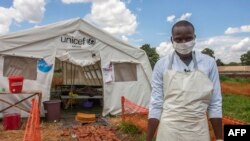Most deaths from the disease, which is spread through contaminated water and food, are occurring in four districts bordering Lake Malawi and in Blantyre, the country's second largest city.
Chiponda said most deaths occurred after patients only attended facilities for treatment late into the progression of the disease. The outbreak now has a mortality rate of 3.1%, up from 2% in March.
"We are anticipating more cases, but are still not well prepared in terms of equipment supplies, and knowledge capacities," said Eunice Mselemu, a nurse at Ndirande clinic, in Blantyre's most densely populated township.
Health workers fear the worst is yet to come as current cases were recorded before the onset of wet weather.
"It's the first time I have experienced Cholera hitting so hard before the rain season," said Violet Mota, a senior health surveillance assistant at Limbe Clinic.
Malawi is yet to roll out a second phase of Cholera vaccines after receiving 2.9 million doses through the World Health Organisation earlier this month, leaving many people scrambling for left-over doses of an earlier vaccination campaign in May.
Malawian John Mangani is one of those who received rehydrating fluids and treatment too late into the disease to survive, his family said.
"Everything seems to have happened so fast and we lost him," said Aida, Mangani's sister in Chiswe, a village near Limbe Clinic.
